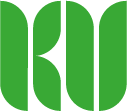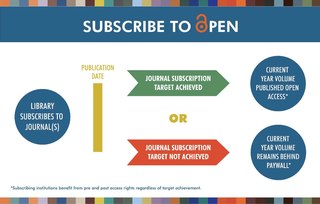Related Research Articles

Academic publishing is the subfield of publishing which distributes academic research and scholarship. Most academic work is published in academic journal articles, books or theses. The part of academic written output that is not formally published but merely printed up or posted on the Internet is often called "grey literature". Most scientific and scholarly journals, and many academic and scholarly books, though not all, are based on some form of peer review or editorial refereeing to qualify texts for publication. Peer review quality and selectivity standards vary greatly from journal to journal, publisher to publisher, and field to field.

Open access (OA) is a set of principles and a range of practices through which nominally copyrightable publications are delivered to readers free of access charges or other barriers. With open access strictly defined, or libre open access, barriers to copying or reuse are also reduced or removed by applying an open license for copyright, which regulates post-publication uses of the work.

The Public Knowledge Project (PKP) is a non-profit research initiative that is focused on the importance of making the results of publicly funded research freely available through open access policies, and on developing strategies for making this possible. It is a partnership between the Faculty of Education at the University of British Columbia, the Canadian Centre for Studies in Publishing at Simon Fraser University, the University of Pittsburgh, Ontario Council of University Libraries, the California Digital Library and the School of Education at Stanford University. It seeks to improve the scholarly and public quality of academic research through the development of innovative online environments.

A university press is an academic publishing house specializing in monographs and scholarly journals. They are often an integral component of a large research university. They publish work that has been reviewed by scholars in the field. They produce mainly academic works but also often have trade books for a lay audience. These trade books also get peer reviewed. Many but not all university presses are nonprofit organizations, including the 160 members of the Association of University Presses.
Open Humanities Press is an international open access publishing initiative in the humanities, specializing in critical and cultural theory. OHP's editorial board includes scholars like Alain Badiou, Jonathan Culler, Stephen Greenblatt, Jean-Claude Guédon, Graham Harman, J. Hillis Miller, Antonio Negri, Peter Suber and Gayatri Spivak, among others.

The Open Access Scholarly Publishing Association (OASPA) is a non-profit trade association of open access journal and book publishers. Having started with an exclusive focus on open access journals, it has since expanded its activities to include matters pertaining to open access books and open scholarly infrastructure.
Open Book Publishers (OBP) is an open access academic book publisher based in the United Kingdom. It is a non-profit social enterprise and community interest company (CIC) that promotes open access for academic monographs, edited collections, critical editions and textbooks in the Humanities, Social Sciences, Mathematics and Science. All OBP books are peer-reviewed.
An article processing charge (APC), also known as a publication fee, is a fee which is sometimes charged to authors. Most commonly, it is involved in making an academic work available as open access (OA), in either a full OA journal or in a hybrid journal. This fee may be paid by the author, the author's institution, or their research funder. Sometimes, publication fees are also involved in traditional journals or for paywalled content. Some publishers waive the fee in cases of hardship or geographic location, but this is not a widespread practice. An article processing charge does not guarantee that the author retains copyright to the work, or that it will be made available under a Creative Commons license.

Knowledge Unlatched (KU) is an Open Access service provider registered as a for-profit GmbH in Berlin, Germany, and owned by multinational commercial publishing company Wiley as of December 2021. It offers a crowdfunding model to support a variety of Open Access book and journal content packages as well as the financial funding of partnerships.

The Sponsoring Consortium for Open Access Publishing in Particle Physics (or SCOAP3) is an international collaboration in the high-energy physics community to convert traditional closed access physics journals to open access, freely available for everyone to read and reuse, shifting away the burden of the publishing cost from readers (traditional model) and authors (in the case of hybrid open access journals). Under the terms of the agreement, authors retain copyrights and the articles published under SCOAP3 will be in perpetuity under a CC BY license. The initiative was promoted by CERN in collaboration with international partners.
ANU Press is a new university press (NUP) that publishes open-access books, textbooks and journals. It was established in 2004 to explore and enable new modes of scholarly publishing. In 2014, ANU E Press changed its name to ANU Press to reflect the changes the publication industry had seen since its foundation.
The following is a timeline of the international movement for open access to scholarly communication.

Open access to scholarly communication in Germany has evolved rapidly since the early 2000s. Publishers Beilstein-Institut, Copernicus Publications, De Gruyter, Knowledge Unlatched, Leibniz Institute for Psychology Information, ScienceOpen, Springer Nature, and Universitätsverlag Göttingen belong to the international Open Access Scholarly Publishers Association.

In France, open access to scholarly communication is relatively robust and has strong public support. Revues.org, a digital platform for social science and humanities publications, launched in 1999. Hyper Articles en Ligne (HAL) began in 2001. The French National Center for Scientific Research participated in 2003 in the creation of the influential Berlin Declaration on Open Access to Knowledge in the Sciences and Humanities. Publishers EDP Sciences and OpenEdition belong to the international Open Access Scholarly Publishers Association.

Scholarly communication of the Netherlands published in open access form can be found by searching the National Academic Research and Collaboration Information System (NARCIS). The web portal was developed in 2004 by the Data Archiving and Networked Services of the Dutch Research Council (NWO) and Royal Netherlands Academy of Arts and Sciences.
Open access scholarly communication of Norway can be searched via the Norwegian Open Research Archive (NORA). "A national repository consortium, BIBSYS Brage, operates shared electronic publishing system on behalf of 56 institutions." Cappelen Damm Akademisk, Nordic Open Access Scholarly Publishing, University of Tromsø, and Universitetsforlaget belong to the Open Access Scholarly Publishers Association. Norwegian signatories to the international "Open Access 2020" campaign, launched in 2016, include CRIStin, Norsk institutt for bioøkonomi, Norwegian Institute of Palaeography and Historical Philology, Norwegian University of Science and Technology, Oslo and Akershus University College of Applied Sciences, University of Tromsø, University of Bergen, University of Oslo, and Wikimedia Norge.

Open access (OA) to academic publications has seen extensive growth in Australia since the first open access university repository was established in 2001 and OA is a fundamental part of the scholarly publishing and research landscape in Australia. There are open access policies at the two major research funders: The National Health and Medical Research Council (NHMRC) and Australian Research Council (ARC) and around half of Australian Universities have an OA policy or statement. Open Access Australasia, the Council of Australian University Librarians (CAUL), and the Australian Library and Information Association (ALIA) are advocates for Open Access and related issues in Australia.

Diamond open access refers to academic texts published/distributed/preserved with no fees to either reader or author. Alternative labels include platinum open access, non-commercial open access, cooperative open access or, more recently, open access commons. While these terms were first coined in the 2000s and the 2010s, they have been retroactively applied to a variety of structures and forms of publishing, from subsidized university publishers to volunteer-run cooperatives that existed in prior decades.

The Copim community is an international group of researchers, universities, librarians, open access book publishers and infrastructure providers. It is building community-owned, open systems and infrastructures to enable open-access book publishing to flourish. The collaboration is being funded by Research England and Arcadia Fund, via two consecutive projects between November 2019 and April 2026.

Subscribe to Open (S2O) is an economic model used by peer-reviewed scholarly journals to provide readers with open access (OA) to the journal’s content, without charging costs to authors. S2O converts journals that have a traditional subscription model to open access.
References
- ↑ OAPEN (14 December 2021). "The difference between open access and non-open access books". OAPEN Open Access Books Toolkit. Retrieved 2 February 2022.
- ↑ "Springer open access books | Springer — International Publisher". www.springer.com. Retrieved 2023-12-05.
- ↑ Suber, Peter (2012-07-20). "1: What Is Open Access?". Open Access. pp. 1–28. doi:10.7551/mitpress/9286.003.0003. ISBN 9780262301732.
- ↑ "Berlin Declaration on Open Access to Knowledge in the Sciences and Humanities". Max Planck Open Access. Retrieved 4 June 2014.
- 1 2 Ferwerda, Eelco (2014). "Open access monograph business models". Insights. 27: 35–38. doi: 10.1629/2048-7754.46 . ISSN 2048-7754.
- ↑ Suber, Peter (2012). Open access. MIT Press. p. 107. ISBN 9780262517638 . Retrieved 4 June 2014.
- ↑ Archambault, Eric; Amyot, Didier; Deschamps, Philippe; Nicol, Aurore; Rebout, Lise; Roberge, Guillaume (August 2013). "Proportion of Open Access Peer-Reviewed Papers at the European and World Levels—2004-2011" (PDF). Retrieved 4 June 2014.
- ↑ Collins, Ellen; Milloy, Caren (2012). "A snapshot of attitudes towards open access monograph publishing in the humanities and social sciences – part of the OAPEN-UK project". Insights. 25 (2): 192–197. doi: 10.1629/2048-7754.25.2.192 .
- ↑ Bonn, Maria. "Free exchange of ideas Experimenting with the open access monograph". College & Research Libraries News. Retrieved 10 June 2014.
- ↑ "Routledge & CRC Press Open Access Books - Taylor & Francis OA Books". www.routledge.com. Retrieved 2023-12-07.
- ↑ "MDPI Books | Publisher of Open Access Books & Book Series". www.mdpi.com. Retrieved 2023-12-05.
- ↑ "Open Access Books". MIT Press. Retrieved 2023-12-07.
- ↑ "Organisation". OAPEN. Retrieved 3 October 2020.
- ↑ "Directory of Open Access Books". www.doabooks.org. Retrieved 2023-12-07.
- ↑ "Monographs and open access: A report to HEFCE" (PDF). August 2013. Archived from the original (PDF) on 8 July 2015. Retrieved 21 August 2015.
- ↑ "Monographs and open access". August 2013. Archived from the original on 8 July 2015. Retrieved 21 August 2015.
- ↑ Pyne, Ros; Emery, Christina; Lucraft, Mithu; Pinck, Anna (2019-06-01). "THE FUTURE OF OPEN ACCESS BOOKS: FINDINGS FROM A GLOBAL SURVEY OF ACADEMIC BOOK AUTHORS". Copyright, Fair Use, Scholarly Communication, Etc.
- ↑ Laakso, Mikael (2023-01-01). "Open access books through open data sources: assessing prevalence, providers, and preservation". Journal of Documentation. 79 (7): 157–177. doi:10.1108/JD-02-2023-0016. ISSN 0022-0418. S2CID 259300771.